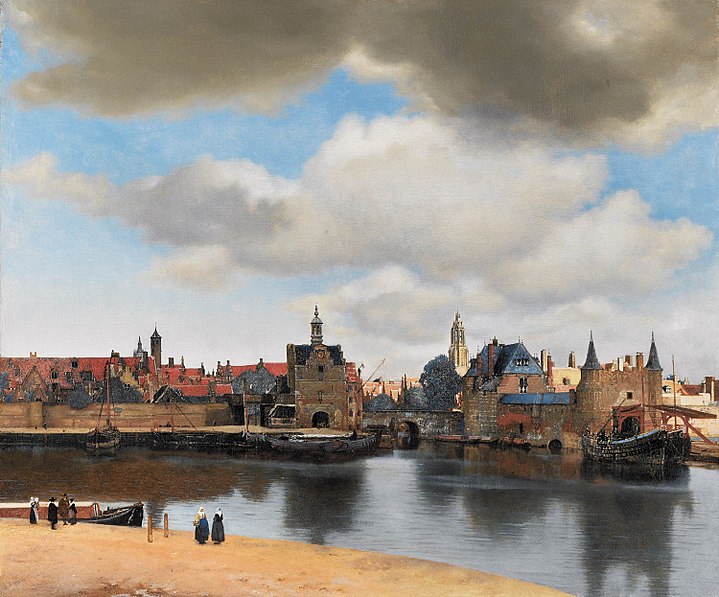A journalist's favorite word for describing the painful cocktail of heavy snow and transportation delays is "snarl." The word was apt yesterday because everyone was "snarly." The girl in front of me in the line at the gate was brought to tears when the gate agent gave her the option of (a) taking a flight to Philly, potentially missing her international connection, and being stranded there (Monday) or (b) getting a confirmed ticket for a flight on (Wednesday). "It's your choice. I cannot tell you what you should do." Thanks a lot!
 |
| The Lego Liberty Bell nestled off a very long people mover between gates at PHL |
Door to door it took me 24 hours to get back to the Hague which seems normal. Here are my take-aways from spending most of that time in airports:
- Try, try again - If you don't get the answer you want, hang up / spin yourself around, and ask the next agent. Airline rules are often arbitrary and an agent who is tired may not be willing to help you. Yesterday I tried to go standby to PHL and one agent said "No. Philadelphia is closed, I am not going to change your itinerary." About 30 minutes later, I asked the agent standing next to the previous agent and he skipped the standby list and handed me a boarding pass for the next departing flight. I was in Philly 1.5 hours later.
- Free WiFi in some restaurants - The Green Turtle in BWI had an unsecured, free internet connection. Isn't WiFi like water fountains and bathrooms nowadays?
- Philadelphia is a bad airport - It is a sprawling layout with a confusing system of shuttles and terminals. I believe kindergarteners designed it via write-in contest. On the plus side, they do have a Lego liberty bell.
- Always go standby on earlier flights - A lot of times airlines remove their change fees during weather situations like the one in the Northeast this week. If you can get out earlier, do it. My original flight never made it to Philly. The flight I got on was four hours late but "on time" for me. Of course, you risk getting stranded somewhere but I think it is always better to be closer to your destination.
- Se habla español - I called the US Airways customer service line yesterday and the wait time quoted was "one hundred eight minutes" !?!?! I hung up and called back, pushed the number 2 for Spanish and the wait times was quoted as "once minutos"? I decided to go to the airport to change things but that's one I never thought of before.
I hope you don't get 'snarled' anytime soon. Let me know your suggestions for passing time in airport terminals.


+Dollar+to+Euro+Conversion+v1.PNG)


+Hotel+Entrance+Small.JPG)
+Favs.png)
+Veenkade+Street+Sign.JPG)
+goog+translate.PNG)

+Murder+Rate+by+Locale.png)




